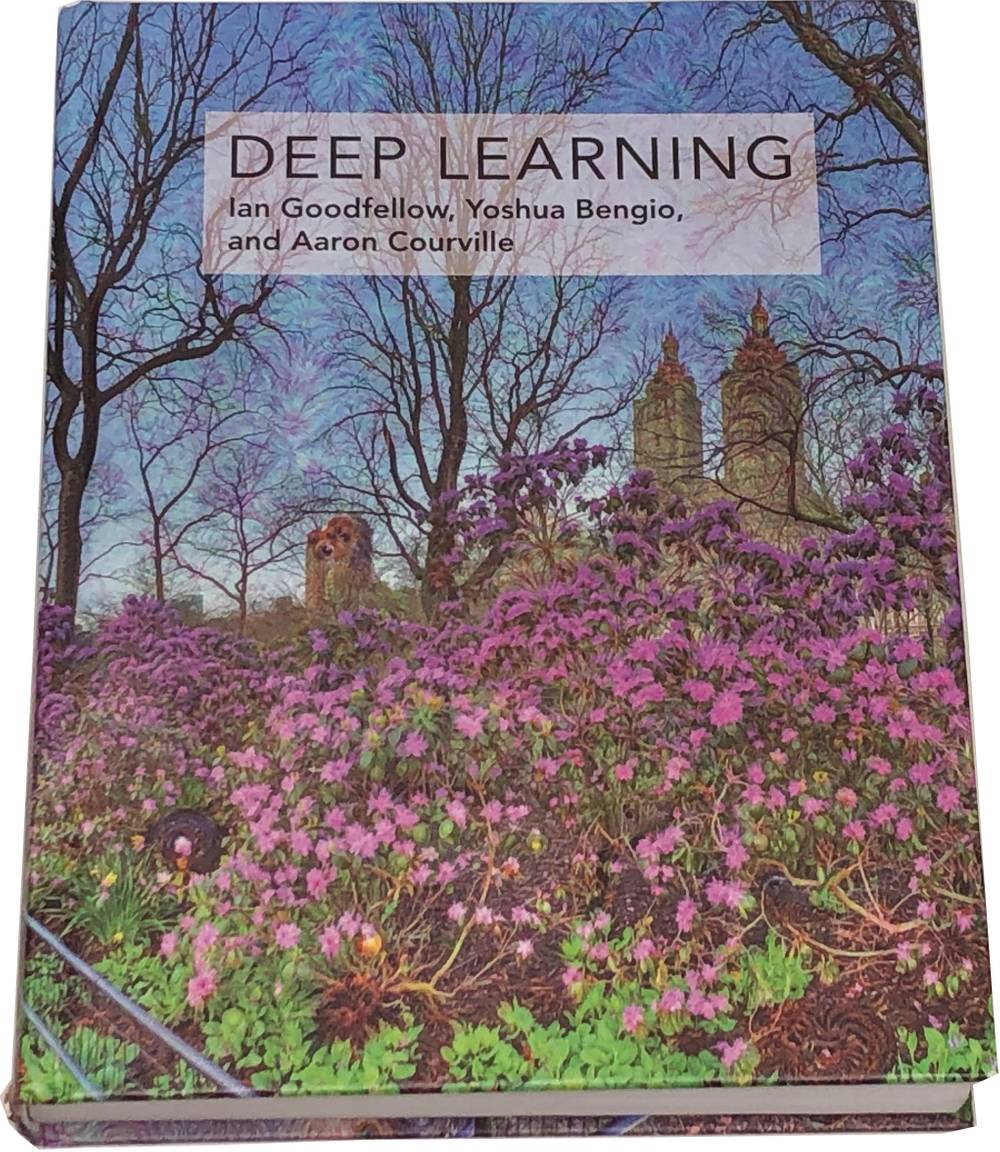Definitions of what constitutes deep learning vary, but for most practical purposes it is the use of an artificial neural network that is multiple layers deep. Deep learning has proven to be a very effective tool for speech and vision tasks, such as converting speech to text and classifying images, and can be a useful tool for many others. It tends to be a very empirical approach, so you won't have to learn very much theory in order to use deep learning effectively.
Recommended Books
Deep Learning
Ian Goodfellow, Yoshua Bengio And Aaron Courville

Key Features
Key Topics
- Approximate Inference
- Autoencoders
- Back-Propagation
- Computer Vision
- Convolutional Networks
- Data Augmentation
- Dropout
- Early Stopping
- Feedforward Networks
- Generative Models
- Gradient-Based Learning
- Hyperparameter Selection
- Initialization
- Linear Algebra
- Linear Factor Models
- Long Short-Term Memory Nets
- Machine Learning Basics
- Monte Carlo Methods
- Optimization
- Parameter Norm Penalties
- Pooling
- Probability Theory
- Recurrent Neural Networks
- Regularization
- Representation Learning
- Semi-Supervised Learning
- Sequence Modeling
- Structured Probabilistic Models
Description
Deep learning is a relatively new field, and there aren't a lot of books that are geared specifically toward it. This book is divided into three parts. The first part, an introduction to machine learning concepts, is sufficient to get you started in deep learning. The second part, by far the strongest, describes the construction, training, and methods for improving common deep learning models. The third part consists of a collection of research topics in deep learning, and it probably is not terribly useful for most practitioners. There is a book website that purports to have errata and exercises but, as of December 2018, there is only one exercise and the errata is insubstantive. There's also no example code. Overall this is a useful book for learning about deep learning, but you'll need a practical tutorial to implement the ideas.
Deep Learning with Python
François Chollett
Key Features
- Example Python code
Key Topics
- Binary Classification
- Computer Vision
- Convolutional Neural Nets
- Feature Engineering
- Generative Adversarial Networks (GANs)
- Generative Models
- Gradient-Based Optimization
- Keras
- Keras Functional API
- Long Short-Term Memory (LSTM)
- Machine Learning Fundamentals
- Mathematical Building Blocks of Neural Networks
- Multiclass Classification
- Overfitting and Underfitting
- Recurrent Neural Networks
- Regression
- Setting up a Deep Learning Workstation
- Tensor Operations
- Variational Autoencoders
- Working with Text Data
Description
This is a very applied book written by the author of one of the most popular deep learning libraries. There are no exercises, but much of the book is devoted to taking you through code applications, so you may not need them. The downside of this book is that it's devoted to a particular library (Keras), and there may be options that would serve you better. However, it's not all that difficult to transition to a different library once you are proficient in another.

